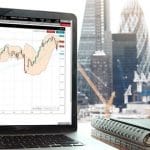There are literally thousands of CFD brokers that operate around the world and most will accept clients from the UK. But how do you know which one is best and where to start?
We’ve put together a comparison of CFD brokers so you can compare CFD trading platforms, that are industry leaders and offer the best accounts for CFD trading.
In the CFD broker comparison tables you can compare the key features like spreads, costs, commission, margin, leverage, market access and read fuller reviews.
So, if you are looking for a CFD broker, Good Money Guide is a good place to start.
However, more important than what to look for is what to AVOID when finding a CFD broker.
Here are three things to definitely avoid when choosing a CFD broker:
If the CFD broker is not fully authorised and regulated by the FCA.
If a CFD broker is not fully authorised and regulated by the FCA they are not allowed to deal in CFD’s for clients. AVOID.
Check how to spot CFD trading scams to help identify possible scams.
If the CFD broker is not based in the UK
There are loads of CFD brokers based in Cyprus where it is easy to get regulated, then use that regulation to get on the FCA register so they appear like a UK based CFD broker.
Always check that a brokers main country of business is the UK. If not they probably don’t have full FCA regulation and client funds will not be protected under the FSCS. AVOID
If the CFD brokers is too pushy
One aspect of dodgy CFD brokers the FCA has worked hard to curtail is high pressure sales tactics.
If you speak to your broker and they come on too strong, don’t deal with them.
Properly regulated CFD brokers are there to provide access to the markets, not pressure clients into trading. AVOID.
Here’s how to trade CFDs and the risks of doing so.
Stock Trading with CFD Brokers
The pros and cons of trading stocks on CFDs are:
- You don’t have to pay stamp duty to the Government.
- You can still get DMA. DMA enables you to get into the order book for trading at the best possible prices.
- Equity CFD brokers will offer access to the global markets, but this is generally only for the larger brokers – smaller CFD brokers tend to only offer FX, commodity, index and fixed income prices.
Here’s how to choose a CFD equity broker from the types of CFD brokers available.
The cons of trading stocks through a CFD broker:
- You will have to pay overnight financing charges on open positions that can become costly over time.
- You may not be able to trade small stocks with low market capitalisation.
- The margin rates for smaller stocks can be very high.
- You do not get the right to vote in corporate actions.
Where can you trade CFDs with a stockbroker?
Not all CFD brokers offer stock trading. Compare the best online stock brokers if you need a stock trading account.
The majority of CFD brokers only offer CFD trading on the most popular currency pairs, indices and commodities and some well-known stocks.
Brokers like IG, Saxo Markets and Interactive Brokers offer CFD trading a wide range of shares.
CFD stockbrokers are really a good example of why CFDs are a useful tool.
CFDs enable stockbrokers to give their clients direct market access (you can compare DMA brokers here), meaning that they get better prices, can work orders inside the price, and work algo orders like daily VWAP (volume-weighted average price) price matching.

Richard is the founder of the Good Money Guide (formerly Good Broker Guide), one of the original investment comparison sites established in 2015. With a career spanning two decades as a broker, he brings extensive expertise and knowledge to the financial landscape.
Having worked as a broker at Investors Intelligence and a multi-asset derivatives broker at MF Global (Man Financial), Richard has acquired substantial experience in the industry. His career began as a private client stockbroker at Walker Crips and Phillip Securities (now King and Shaxson), following internships on the NYMEX oil trading floor in New York and London IPE in 2001 and 2000.
Richard’s contributions and expertise have been recognized by respected publications such as BusinessInsider, Yahoo Finance, BusinessNews.org.uk, Master Investor, Wealth Briefing, iNews, and The FT, among many others.
Under Richard’s leadership, the Good Money Guide has evolved into a valuable destination for comprehensive information and expert guidance, specialising in trading, investment, and currency exchange. His commitment to delivering high-quality insights has solidified the Good Money Guide’s standing as a well-respected resource for both customers and industry colleagues.


